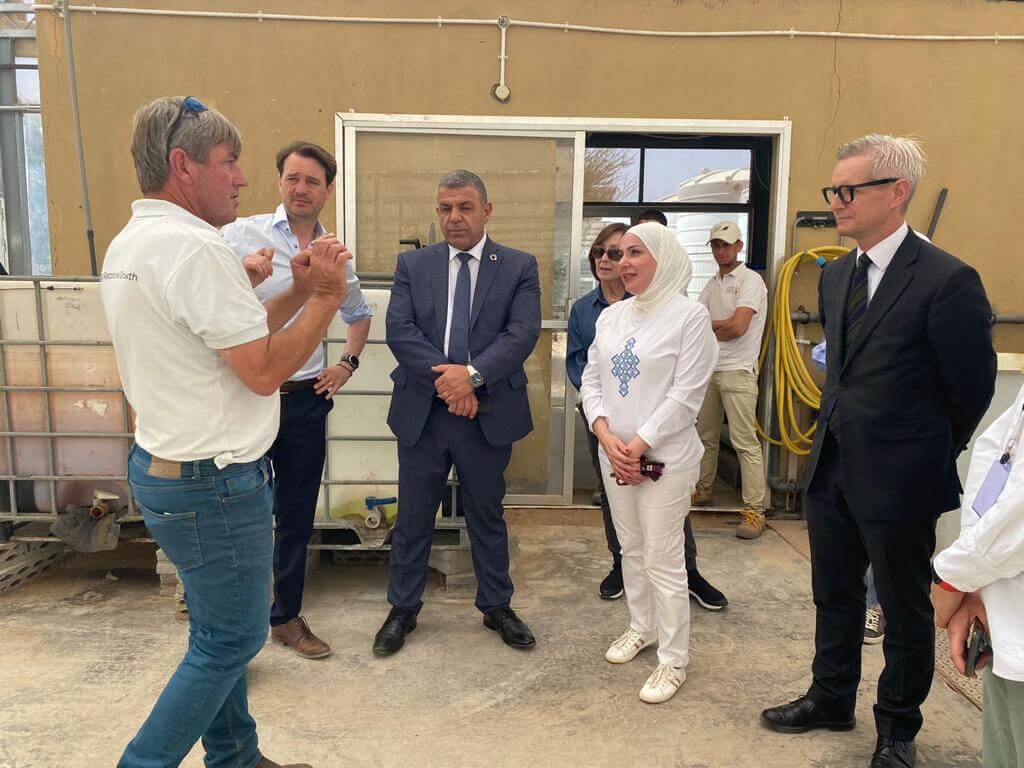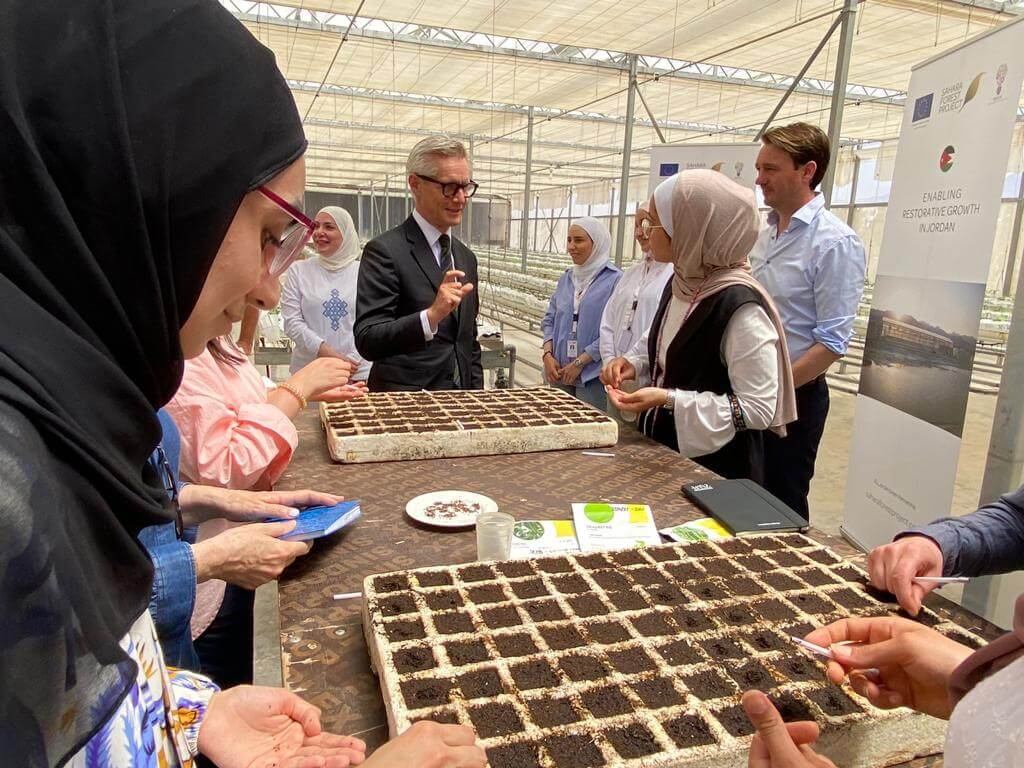AQABA – Norway’s ambassador to Amman, accompanied by the Director of Food and Agriculture Organization (FAO) in the Kingdom, visited the Sahara Forest Project (SFP) site in Aqaba on Monday to review the latest developments in the project and witness part of the technical training provided to young Jordanian women.
Guests toured the site to learn more about the technology used to revegetate arid lands using seawater and solar energy to produce vegetables which could boost the Kingdom’s ability to achieve food security and demonstrate a green economy solution.
FAO country Director Nabil Assaf said, “This is a promising project. The desalinated seawater is used in agriculture and at the same time increases the green cover in the surrounding areas, and this is a perfect thing. The challenge may be the cost component, but the more we work to reduce the cost, the more successful the project will undoubtedly increase.” From here, we invite banks and the private sector to pay attention to this issue. We are ready to provide them with all relevant information and studies in cooperation with the Ministry of Environment, Agriculture, and Water and Irrigation as significant partners in preserving water and the environment for a better tomorrow for future generations.”
SFP is a unique example of a Jordanian-Norwegian partnership that has been operating in Aqaba, Jordan, since 2017 following a royal inauguration and is now at a stage to upscale to commercial levels of production, pending a seawater pipeline which was tendered by Aqaba Development Corporation (ADC) late last year.
The third cohort of young Jordanian females received their second practical training on the agricultural technologies applied on-site as part of the “She Grows” program, implemented with Al Hussein Technical University (HTU).
“SheGrows is a great example of institutional cooperation that puts skills training on sustainable agriculture and women’s participation at the center. Sahara Forest Project is doing an excellent job advancing this agenda together with HTU,” said Espen Lindbæck, Norway’s Ambassador to Jordan.
She Grows one of the strategic pillars of SFP and resembles its social impact arm aiming to enhance women’s participation in the agriculture sector. The program was established on the sidelines of the Norwegian Royal visit to Amman in 2020. The 300-hour program aims to develop young Jordanian graduates interested in working in innovative and sustainable agri-tech and food production in response to Jordan’s water, energy, and climate action priorities. The training covers technical skills, soft skills, and the English language.
“Issues related to climate change had become visible over the past decades, which underlined the importance of pursuing and achieving food security. This program [She Grows] combines the practical and theoretical, which provides graduates with the skills and knowledge necessary to meet the needs of the agricultural and environmental sectors, and provides graduates with the soft and technical skills to allow them to tackle environmental and agricultural challenges sustainably and efficiently so that they become agents of positive change and prosperous future,” said Ho’or Saed, 27, who is taking part in the upskilling program.
“We at SFP are delighted to receive the Norwegian Ambassador at our site, the FAO Country Director, and the 20 young female engineers who are receiving their practical onsite training as part of the ‘She Grows’ upskilling program. The impact we observe on the graduates is heartwarming and inspires SFP and HTU to sustain and expand the program,” said Ruba AlZoubi, SFP Country Director.
Notably, the SFP site in Aqaba was recognized as a case study in the Intergovernmental Panel on Climate Change report launched in April and approved by 195 governments.
“We are proud that IPCC has acknowledged SFP as a solution for the future in combating climate change and tackling water, food, and energy security. Our Ten years in Jordan have shown that such solutions are not only possible and available. The recognition by IPCC gives us and others working on similar solutions the credibility and inspiration to continue working on regional scale-up,” said Kjetil Stake, Managing Director of SFP.


